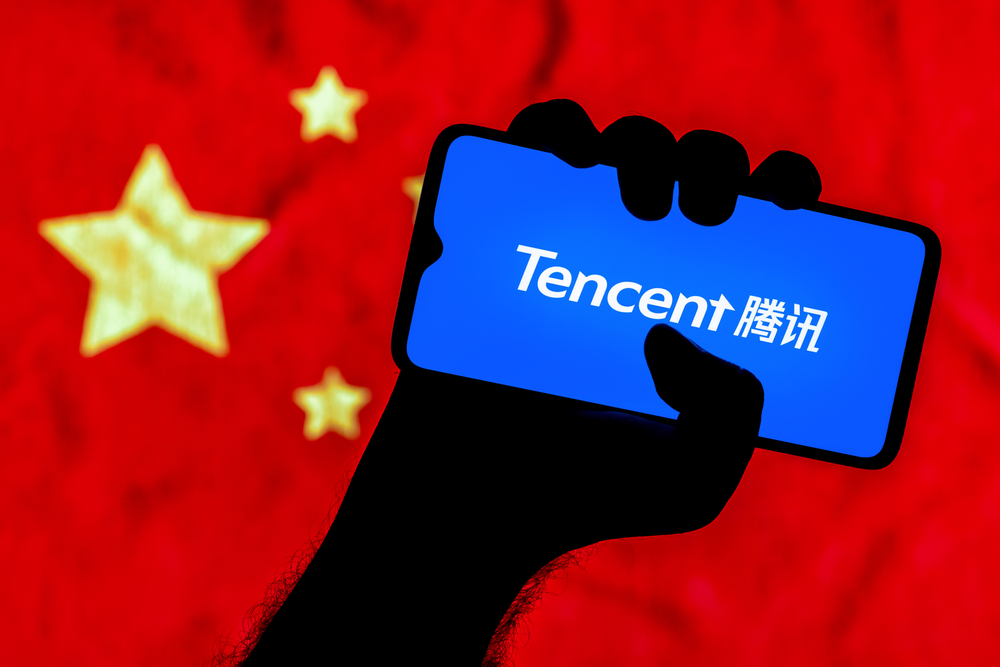Tech giants in China are making preparations for the AI arms race by unveiling plans to offer generative models aimed at challenging Western firms. This week, Tencent, a gaming and social media giant founded in Shenzhen, revealed its intentions to introduce its proprietary foundation platform later this year.
The Chinese tech giants are not to be excluded as the country is pursuing the AI crown. Further claims suggested that Tencent’s initiative will be among the best in the nation. The internet-founded platform firm has tested Hunyuan, an artificial intelligence, across cloud computing, advertising, gaming, and financial technology.
Tencent Laud Progress to Create Generative AI
In a review of the Wednesday earnings call, Tencent officials claimed the firm had made considerable process in creating the model to drive generative artificial intelligence and other applications. Nevertheless, the firm has been considered as being behind some domestic peers because, up to now, it has revealed little information to the public.
During the firm’s latest earning call, Martin Lau, the President, claimed the training was on track and making excellent progress. Besides, he stated that they had commenced internal testing in various businesses, for instance, fintech, games, and ads cloud, to experiment with the model and begin working on the integration. Martin also claimed that the model is among the major foundation models produced in the country.
China Versus United States War Extends to Artificial Intelligence
Tencent’s declaration comes amid Alibaba’s introduction of Qwen-7B and Qwen-7B-Chat, two open-sourced artificial intelligence models. The obvious move seeks to bring competition to Llama 2 by Meta and ChatGPT 3.5 by OpenAI.
According to Alibaba Cloud, the organization’s cloud computing division, developers, and researchers across the globe will have free access to its models. Nevertheless, firms with more than 100 million users will require a permit. This is similar to the licensing requirements of Llama 2 for entities with more than 700 million users.
The contesting models depict China’s increasing efforts to overtake the United States in artificial intelligence expertise. Homegrown firms have been urged by Beijing to quickly promote improved ‘controllable’ models capable of competing with Western counterparts, for instance, OpenAI, Google, and Meta.
Huawei and Tencent Allocate Resources to Generative AI
Other giants, for instance, Huawei and Tencent, have also directed resources into proprietary generative artificial intelligence. According to Tencent’s executives, the firm is considering applications in various sectors, for instance, cloud services, gaming, financial technology, and advertising.
A recent report from global services company PricewaterhouseCoopers (PWC) shows that China’s objective corresponds to estimates that by 2030, artificial intelligence could provide more than 15 trillion dollars into the international economy annually.
Tencent is confident that the technology will be a ‘growth multiplier.’ This may explain the prevailing artificial intelligence fever or gold rush that has made Chinese companies snap up more than 5 billion dollars in GPUs from Nvidia to enhance artificial intelligence innovation.
United States Dictating the Playing Field Rules
At the moment, however, the playing field remains oriented toward the United States. This means that even the showcase models by Alibaba are not at par with Meta’s Llama 2 and its challenging 70 billion parameters. Tencent has yet to reveal its Hunyuan model’s specifics.
The war between Washington and Beijing has also unavoidably shifted to artificial intelligence. President Biden’s administration enforced controls on exporting specific advanced AI chips to China following news of the multi-billion GPU purchases.
With Chinese tech firms, for instance, Alibaba and Tencent, signifying their intent, the race is likely to heat up. Concerning superior AI, no side is ready to make the first move. It portrays that the US-China tariff war would soon play out even in the newly emerging segment of artificial intelligence. Although the US has the upper hand, Chinese firms are inspired to alter the AI field.
Editorial credit: Sergei Elagin / Shutterstock.com
